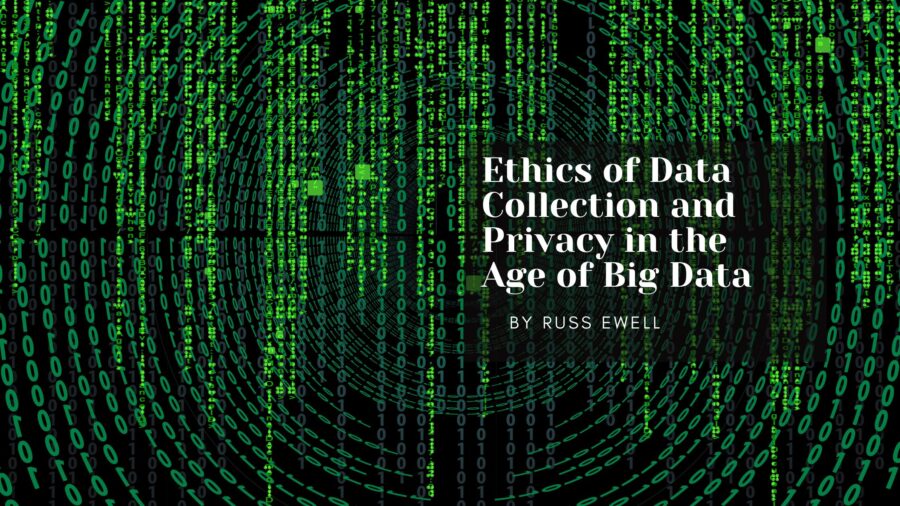Data collection has become a ubiquitous part of our lives. From browsing the internet to using social media platforms, we leave digital footprints that companies and organizations can use to collect and analyze our personal data. Big data continues to rise, which has made it easier to collect and analyze vast amounts of data. Still, it has also raised concerns about data collection and privacy ethics.
The Ethics of Data Collection
The collection of personal data raises ethical concerns about how the data is collected, who has access to it, and how it is used. Some of the key ethical considerations related to data collection include the following:
- Informed Consent: Individuals should have the right to know what data of thier is being collected and how it will be used. Companies and organizations must obtain informed consent from individuals before collecting their data.
- Transparency: Companies and organizations must be transparent about their data collection practices. They should provide clear and concise information about how data is collected, used, and stored.
- Purpose Limitation: Data should only be collected for specific and legitimate purposes. Companies and organizations should not collect data that is not necessary for their business operations.
- Data Quality: Companies and organizations should ensure the data they collect is accurate, complete, and up-to-date.
- Security: Companies and organizations are responsible for protecting personal data from unauthorized access, use, and disclosure. They should implement appropriate security measures to safeguard personal data.
The Ethics of Privacy
Privacy is a fundamental human right protected by international and national laws. The rise of big data has raised concerns about personal data privacy. Some of the key ethical matters related to privacy include:
- Data Ownership: Individuals should have control over their personal data. Companies and organizations should not claim ownership of personal data.
- Data Minimization: Companies and organizations should only collect the minimum personal data necessary to achieve their business objectives.
- Data Retention: Companies and organizations should only retain personal data for as long as necessary for their business operations.
- Data Sharing: Companies and organizations should only share personal data with third parties for specific and legitimate purposes.
- Data Deletion: Individuals should have the right to request the deletion of their personal data.
How to Ensure Ethical Data Collection and Privacy
To ensure ethical data collection and privacy, companies and organizations should:
- Develop Clear and Concise Privacy Policies: Every company, businessm and organization must develop clear and concise privacy policies that explain their data collection practices.
- Obtain Informed Consent: Companies and organizations must also obtain informed consent from individuals before collecting their data.
- Implement Appropriate Security Measures: Companies and organizations should implement appropriate security measures to protect personal data from unauthorized access, use, and disclosure.
- Regularly Review and Update Privacy Policies: Companies and organizations should periodically review and update their privacy policies to ensure they comply with all relevant laws and regulations.
- Provide Access to Personal Data: Individuals should have the right to access their personal data and correct any inaccuracies.
Conclusion
Data collection and privacy ethics are essential considerations in the age of big data. Companies and organizations are responsible for collecting personal data ethically and protecting individuals’ privacy. By implementing appropriate security measures, obtaining informed consent, and regularly reviewing and updating privacy policies, companies and organizations can ensure that they collect and use personal data ethically and responsibly.
_________________
Russ Ewell – Technology


